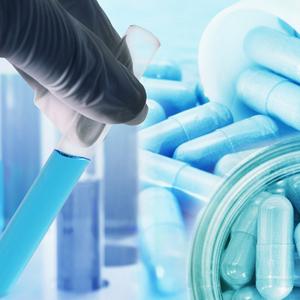Columbia University Professor Jeffrey Sachs is one of the world's most influential public intellectuals. His war against global poverty is commendable, if not always congenial. His expertise is rightly sought by national and international media outlets.
It's strange, then, for someone of his knowledge, accomplishment, and reputation to repeat verifiably untrue claims. A recent exchange on Twitter reveals that, at times, Dr. Sachs has merely a casual relationship with the truth.
Jeffrey Sachs's War on the Pharmaceutical Industry
Dr. Sachs really does not like the pharmaceutical company Gilead, which has developed a cure for hepatitis C, called Sofosbuvir. In 2015, he wrote an opinion piece lambasting the company for the high price of its life-saving drug that, as our own Dr. Josh Bloom responded at the time, was "embarrassingly wrong" on almost every count. Indeed, Dr. Sachs's argument betrayed the fact that this economist understands neither the business model nor the economics of the pharmaceutical industry.
Dr. Sachs went so far as to accuse Gilead of killing patients, an unhinged argument considering that the company has indisputably saved countless lives. Unfortunately, Dr. Sachs hasn't learned anything since then. On Twitter the other day, he wrote:

The first two statements are technically true but incredibly misleading -- a tactic typical of a demagogue, not an academic*.
Today, a substantial portion of basic biomedical R&D is performed by startup companies. Very few of these companies go public (i.e., list on the stock market and become giants). Instead, most companies seek to produce a novel drug or medical device that shows promise in early tests and trials. At that point, the founders often look to sell their company to a larger, more established firm. There are several reasons, but two are the most pertinent: It allows the founders (and their investors) to make money more quickly, and a larger firm has the resources and expertise to continue developing and testing the product.
The larger firm acquiring a smaller firm is taking a big risk, namely, that the drug won't work. In an acquisition of a smaller company, that could be a sunk cost of millions or even billions of dollars.
In the case of Gilead, the company purchased Pharmasset for $11 billion. At the time, Reuters described the acquisition as a gamble because Pharmasset had "no significant marketed products." The article's introductory paragraph said:
Gilead Sciences Inc (GILD.O) struck a deal to buy biotechnology company Pharmasset Inc VRUS.O for about $11 billion in a huge and risky bet on the next generation of hepatitis C treatments. [Emphasis added]
So, Dr. Sachs is technically correct when he said that Gilead did not discover Sofosbuvir. Instead, they gambled $11 billion on a drug that might not have worked. Gilead had to usher the drug through Phase 3 clinical trials, where the drug may have failed. Dr. Sachs not only fails to acknowledge the astronomical risk taken by both Pharmasset's investors and Gilead, but perversely twists the narrative:
Gilead paid Pharmasett $11 billion because it knew very well that it was about to rip off the American people and quickly recoup this sum and much more.
That's demagoguery, plain and simple.
What alternative would Dr. Sachs prefer? Should Gilead never have bought Pharmasset? If that was the case, then Pharmasset likely would have had to raise money to pay for Phase 3 clinical trials itself. That would have delayed bringing the drug to market. Nobody benefits from that.
If price controls were put into place to prevent Pharmasset from selling itself to Gilead for $11 billion, then future biomedical startups will have a more difficult time raising money. Which investor wants to invest in a company where the government arbitrarily limits its profits?
Dr. Sachs's third statement is a complete fabrication. Yes, Sofosbuvir is incredibly expensive. However, Gilead has to recoup the costs of not only Sofosbuvir but of all the other failed drugs it has developed. And, the company has to make a profit to stay in business in order to make more life-saving drugs (and to satisfy its own investors). Gilead is not a charity. Finally, Gilead has not "prolonged the epidemic." Instead, it has licensed the drug to generics manufacturers in India, where the pills sell for $4.
Dr. Sachs's humanitarian impulse to provide free or low-cost drugs to patients who can't afford them is laudable. However, that is not Big Pharma's job; that's the job of government, charities, philanthropists, and rich economists.
Jeffrey Sachs Attacks Ivanka Trump for Agreeing with Him
This episode on Twitter was initiated when an atmospheric scientist, Ryan Maue, noted that Dr. Sachs's latest article for Project Syndicate was "deranged." Once again, Dr. Sachs abandons truth to make a demagogic argument. Angry with President Trump for abandoning the Paris Agreement, Dr. Sachs wrote:
The next human-caused climate disasters should be named Typhoon Donald, Superstorm Ivanka, and Megaflood Jared.
Ivanka Trump and Jared Kushner supported the Paris Agreement. Because Dr. Sachs doesn't like her dad, he felt it was fine to lie about Ivanka's position on climate change.
The Trouble with Demagogues
The trouble with demagogues is that, to them, ideas are more important facts. When facts contradict their cherished ideas, the facts be damned. We should expect better from a highly regarded Columba University professor.
On the other hand, the university also employs celebrities like Dr. Oz and Mark Bittman, so perhaps we shouldn't.
*Here's an excellent video of Dr. Niall Ferguson calling Dr. Jeffrey Sachs a demagogue on international TV.




